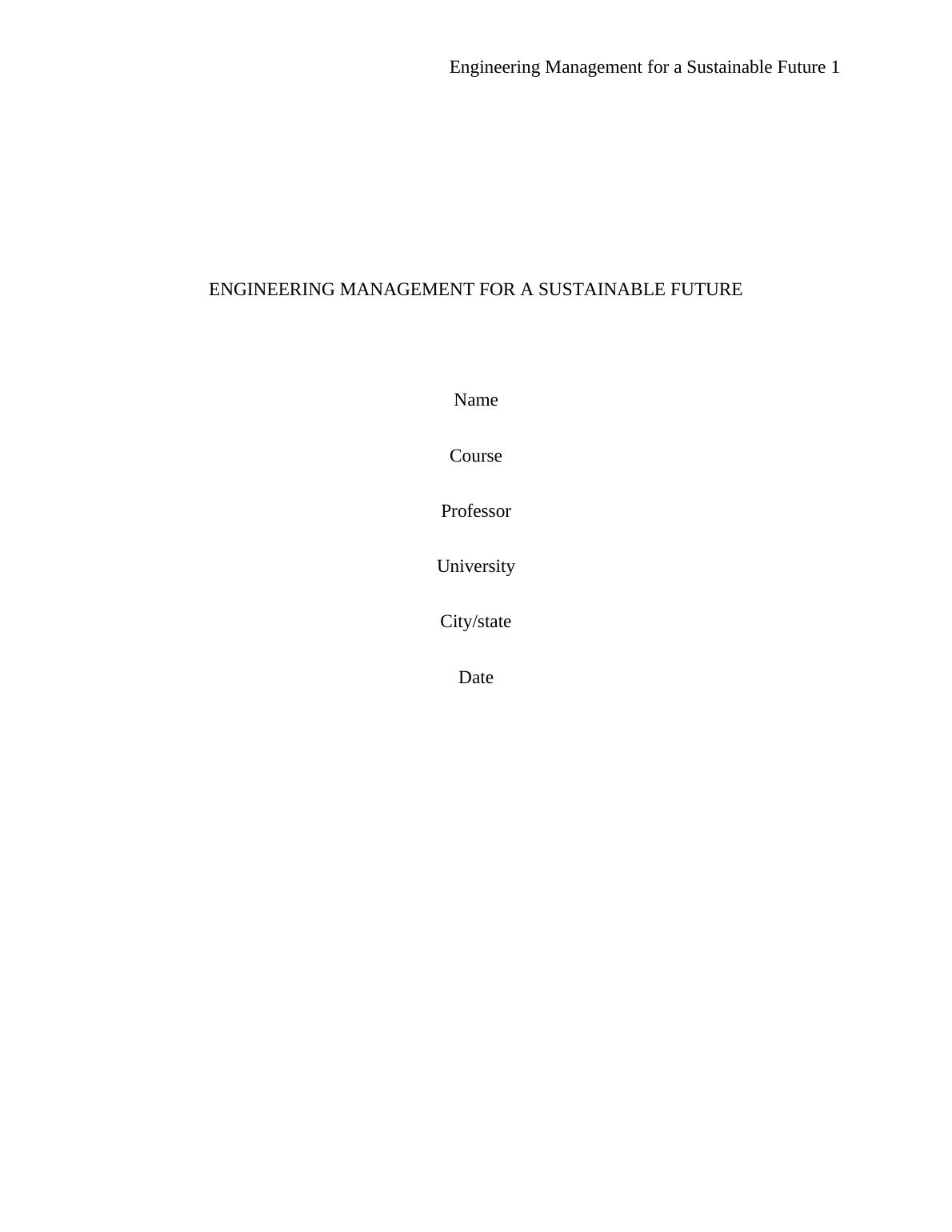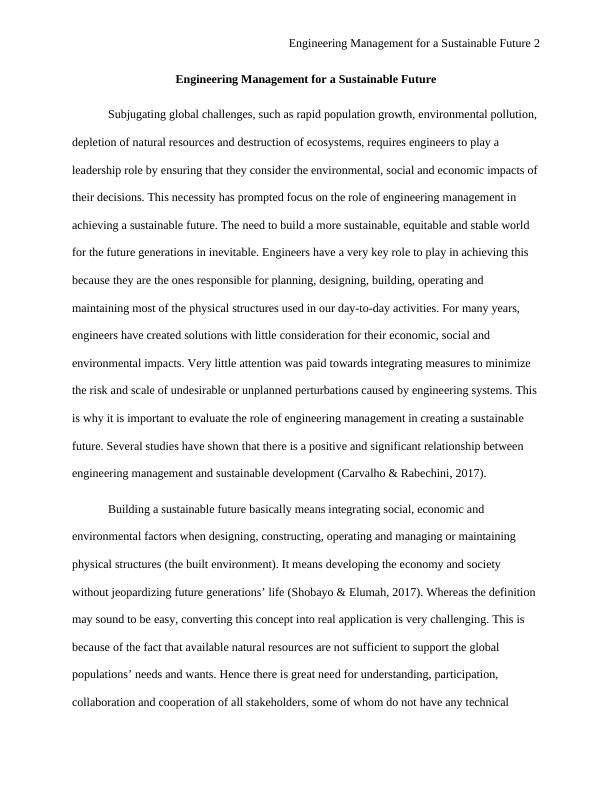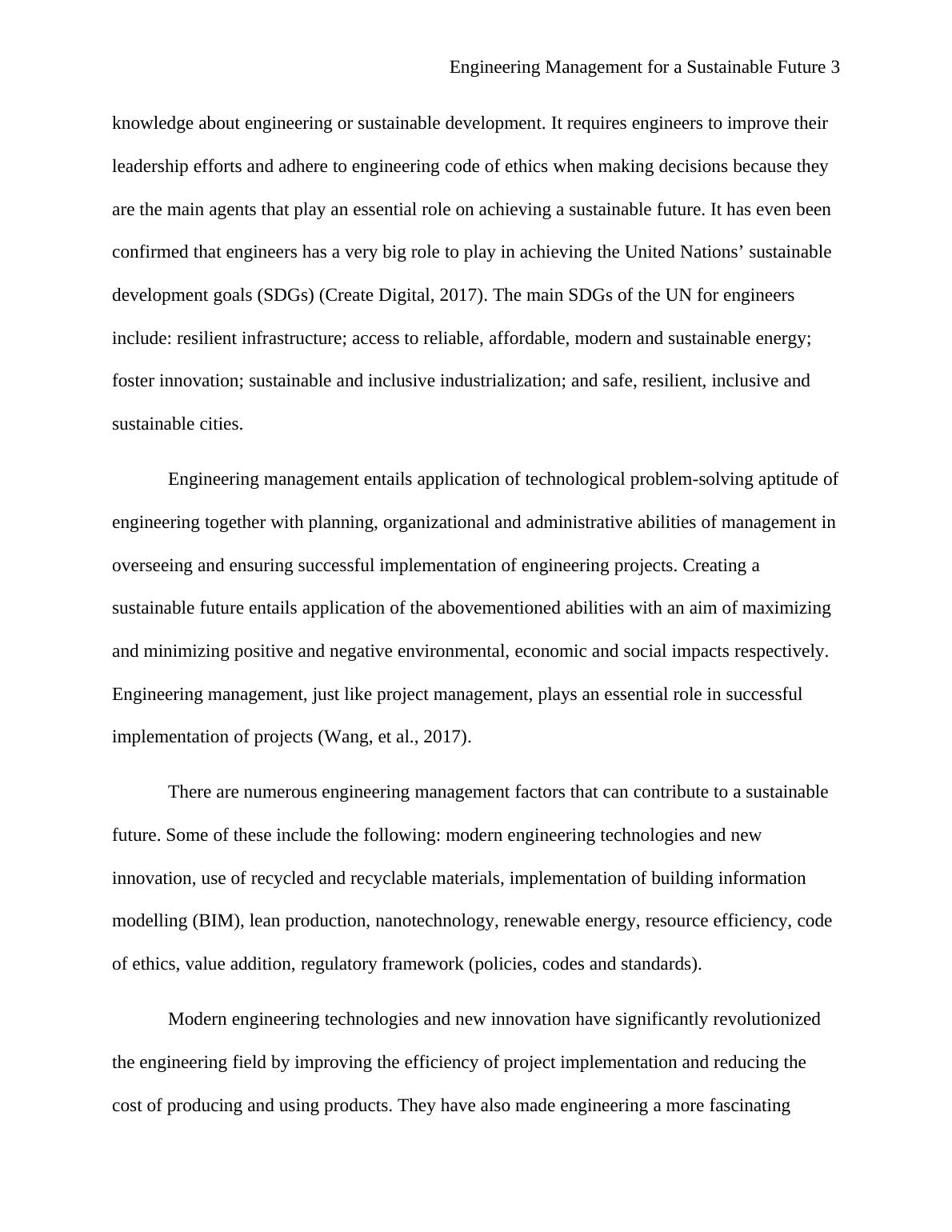Engineering Management for a Sustainable Future
Reflect on and critically analyze ideas and practices from workshops one and two in ENG93000, drawing links to literature, theories, and case studies.
8 Pages2240 Words237 Views
Added on 2023-04-21
About This Document
Subjugating global challenges, such as rapid population growth, environmental pollution, depletion of natural resources and destruction of ecosystems, requires engineers to play a leadership role by ensuring that they consider the environmental, social and economic impacts of their decisions.
Engineering Management for a Sustainable Future
Reflect on and critically analyze ideas and practices from workshops one and two in ENG93000, drawing links to literature, theories, and case studies.
Added on 2023-04-21
ShareRelated Documents
End of preview
Want to access all the pages? Upload your documents or become a member.
Sustainable Development Goals and Their Impacts on Business and Accounting
|5
|944
|46
Sustainability and Innovation: A Case Study of Deloitte
|7
|1642
|85
Management Strategy Report
|10
|2722
|148
Sustainable Building Design in Nairobi, Kenya
|10
|2069
|74
Sustainable Development Introduction
|10
|3488
|30
(PDF) CSR and sustainable development
|10
|2061
|94



